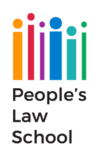Consumer Law Essentials: Difference between revisions
Jump to navigation
Jump to search
No edit summary |
No edit summary |
||
| Line 1: | Line 1: | ||
[[File:ConsumerLawGuideBooklet.jpg|thumb| | [[File:ConsumerLawGuideBooklet.jpg|thumb|250px|right|alt= Consumer Law Wikibook |To come: Cover of the Consumer Law Wikibook]]{{fmbox | ||
| type = | | type = | ||
| image = [[File:Nuvola_mimetypes_pdf.png|40px|link=|alt=]] | | image = [[File:Nuvola_mimetypes_pdf.png|40px|link=|alt=]] | ||
Revision as of 06:13, 15 March 2013
|
|
Download the full wikibook in PDF (real link to come). |
|
|
This wikibook is made available as part of the Clicklaw Wikibooks initiative, which features free online legal information that is used to also produce printed materials. |
This wikibook describes some of the most common consumer problems. It aims to help you:
- know the laws that protect you when you buy items or hire someone to provide a service, such as home repairs,
- understand your options when someone owes you money, or you owe someone money, and
- learn how to identify scams and how to avoid them.
Content[edit]
About this Guide[edit]
- Visit other wikibooks from People's Law School, or learn more about Clicklaw wikibooks
About People's Law School[edit]
The People's Law School is a non-profit charitable society whose purpose is to provide British Columbians with reliable information about their rights and responsibilities under the law.

- Suite 150 - 900 Howe Street
- Vancouver, BC
- V6Z 2M4
- Tel 604.331.5400
- Fax 604.331.5401
- Email info@publiclegaled.bc.ca
This booklet and others are available on the People's Law School website.